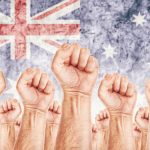Making a Murderer: David vs Goliath

The ten-hour Netflix documentary series, Making a Murderer, follows the trials of Steven Avery and Brendan Dassey for the rape and murder of Teresa Halbach, revealing significant problems with adversarial justice systems – where a defendant with limited funds is often pitted against a prosecution with enormous resources at its disposal.
Stunned viewers have been left with more questions than answers about the way Avery and Dassey were treated by the community, law enforcement, and the legal system:
How did an innocent man spend 18 years in prison? Why was this family so hated by the Manitowoc County? How could Avery and Dassey receive a fair trial when they have such limited means and the State was so determined to convict them? How could a boy of limited intelligence facing life in prison be interrogated without his defence lawyer present? Has justice really been served for Teresa Halbach and her family?
While some questions may never be answered, Steven Avery’s criminal lawyer, Dean Strang, has addressed the cost of receiving a fair trial in the United States. He says that in terms of resources, the State always wins.
Mr Strang says that even for very wealthy defendants, like Bill Cosby or O.J. Simpson, the State can, and does, dwarf the most well-resourced legal teams. For disadvantaged de-fendants like Avery and Dassey, proving your innocence really is a David and Goliath battle.
In an interview with Forbes magazine, Strang explains exactly where the settlement payment of $400,000 Avery received in relation to his wrongful imprisonment went. He says that after paying his civil lawyers, Avery was left with $240,000 to fight the new charges regarding the death of Teresa Halbach.
Avery handed the $240,000 over to Strang and Jerry Buting to defend him. Strang itemised the expenses incurred in defending Avery over the course of the year, which included the cost of expert witnesses, private investigators, accommodation during the trial, and scientific testing. Strang and Buting were left with $9 per hour for their hard work—just over the US minimum wage.
Avery’s young nephew had no means to defend himself against the State, which had for-midable FBI’s resources at its disposal. Dassey’s case was handled by public defenders, one of whom, Len Kachinsky, was dismissed eight months before trial.
Kachinsky has been the subject of intense criticism for allowing then 16-year-old Dassey – who had a reading age of 8 years – to be interviewed by detectives for several hours without legal representation.
When asked why any criminal defence lawyer would bother defending someone who couldn’t pay and was probably guilty anyway, Strang spoke about how any adversarial system of justice, like the one we have in Australia, is built on every person being able to put their best case forward. He told Forbes:
“What gets overlooked–and it’s I think something that thoughtful citizens ought to consider-when you fund indigent defense, you’re not just giving a bad guy a free lawyer. Even if you assume he’s a bad guy… You’re also buying a public good.”
“Thoughtful citizens say, “We hand out long sentences like they’re water in the modern United States. We have the longest sentences in the world we have the highest rate of incarceration per capita in the world. I, as a citizen, want to have confidence we’re locking the right people up.”
“We have an adversarial system that means our faith is placed in both sides are being roughly equally matched and having an even fight. A sharp contest. A boxing match be-tween opponents in the same weight class.
“If we’ve got a 125-pound guy fighting at 225-pound heavyweight, how much confidence do I have that, case after case, that this system is going to get the outcomes right? That the decision to lock someone up is reliable, based on guilt?
“That’s the public good. Maybe we can sleep a little better at night, saying we’ve done the best we can.”
Closer to Home
Similarly in Australia, defendants with limited means are pitted against well-resourced prosecutorial bodies every single day.
As discussed in previous blogs, those who do not have sufficient funds to pay for a lawyer will often seek to rely upon the Legal Aid Commission for assistance – a body which has extremely limited funds and often pays private criminal defence lawyers ‘peanuts’ to undertake complex criminal cases. In fact, it is not uncommon for private lawyers who are funded by Legal Aid to make a financial loss on criminal cases. For that reason, a number of firms have stopped taking legal aid assignments in recent years.
And it gets worse – whereas in the United States, all defendants in criminal cases are guaranteed the right to a court-appointed lawyer, many Australians fall into the ‘justice gap’ – unable to pay for a private lawyer but deemed ineligible for Legal Aid. This leaves thousands to fend for themselves in courts across Australia every year; a situation that frequently leads to grave injustice.
On top of all that, whereas it is common for wrongly convicted defendants in the United States to be awarded compensation for their time spent in custody, it is much more difficult to obtain such compensation in Australian jurisdictions – where there are no statutory payout schemes.
Perhaps those who jump to conclusions of guilt when a person is charged with a criminal offence, or even convicted, should take a step back and think about the fact that wrongful convictions are not uncommon in our criminal ‘justice’ system.
Receive all of our articles weekly
Author






